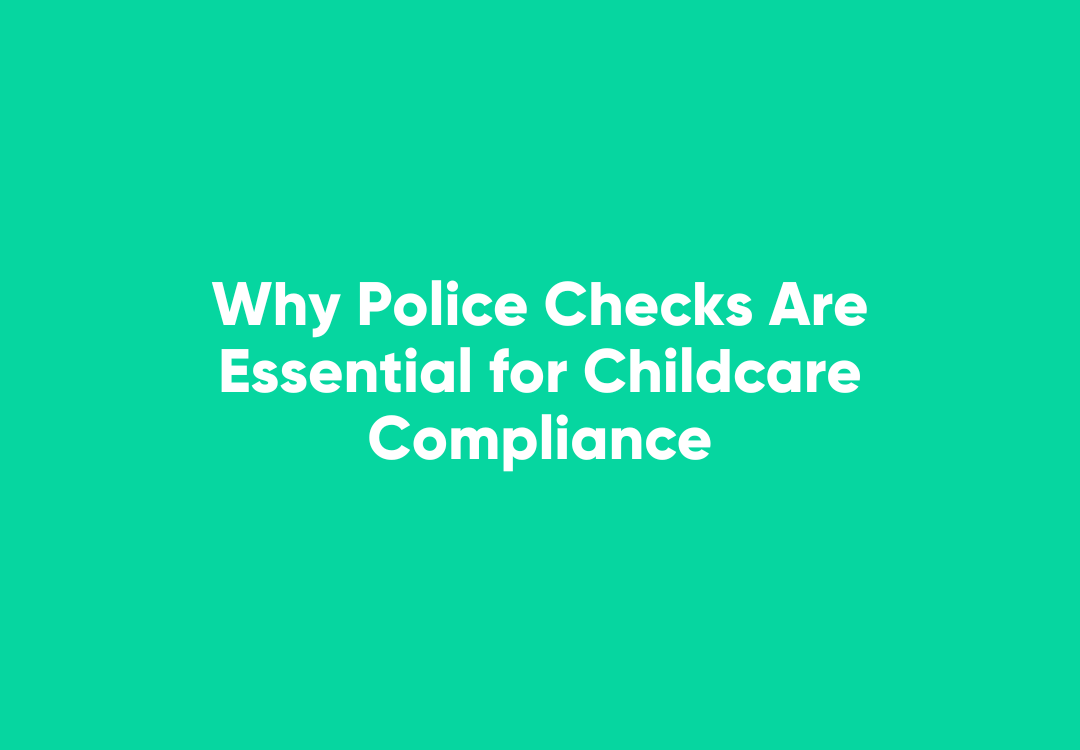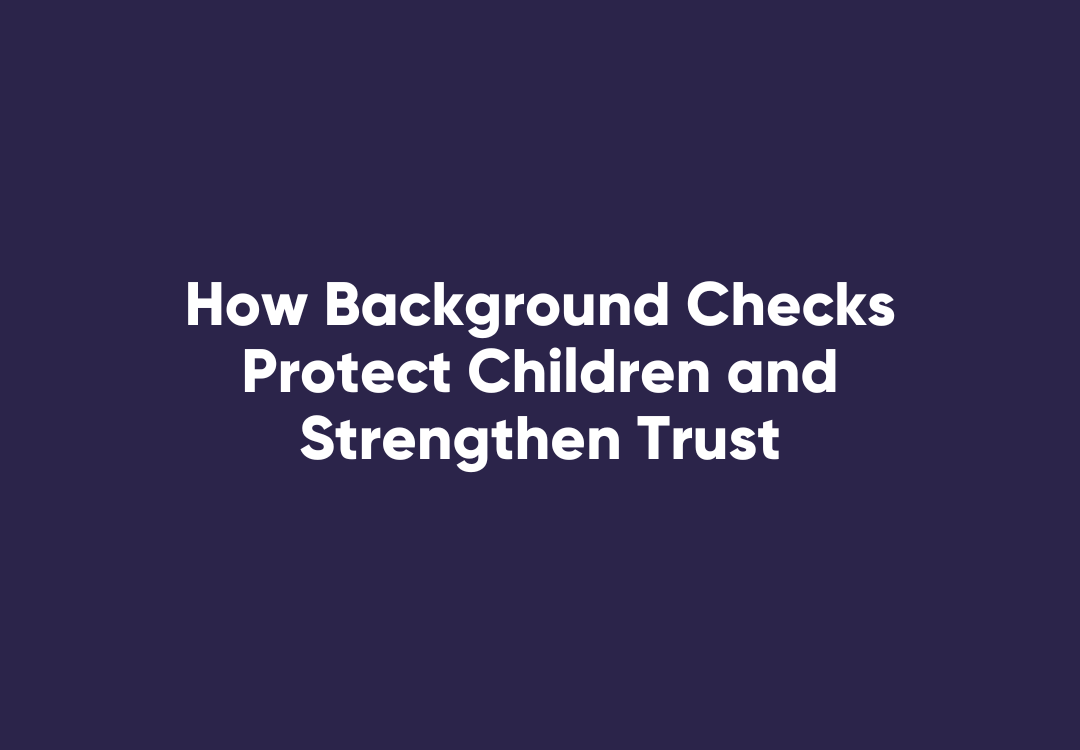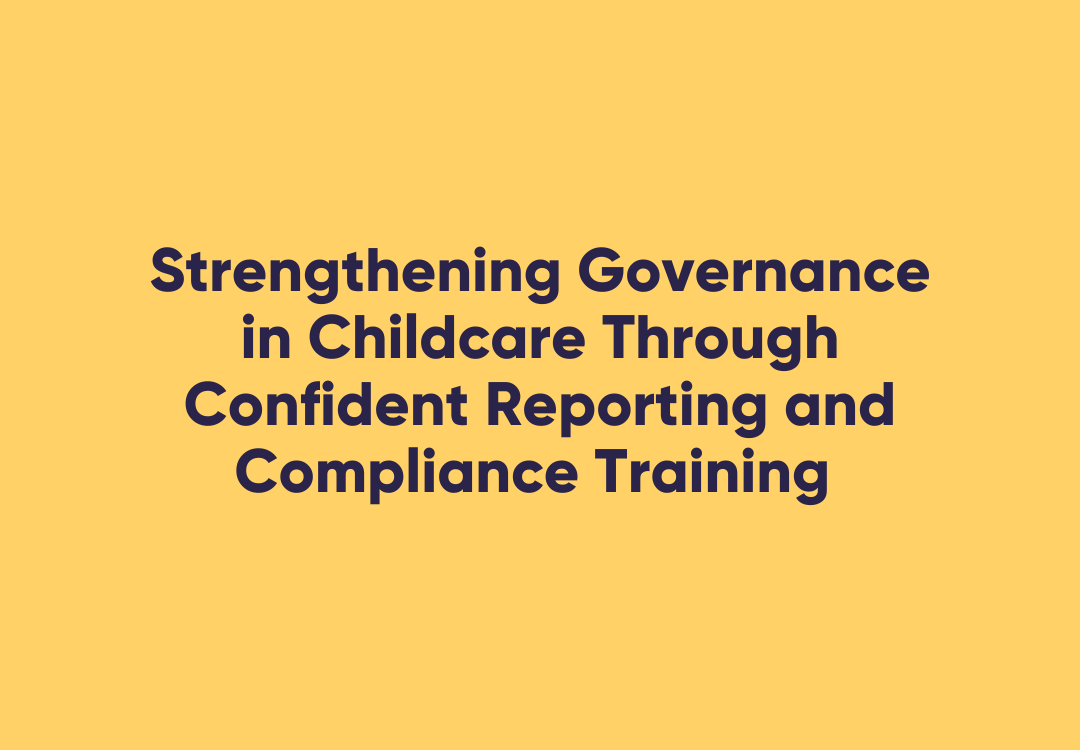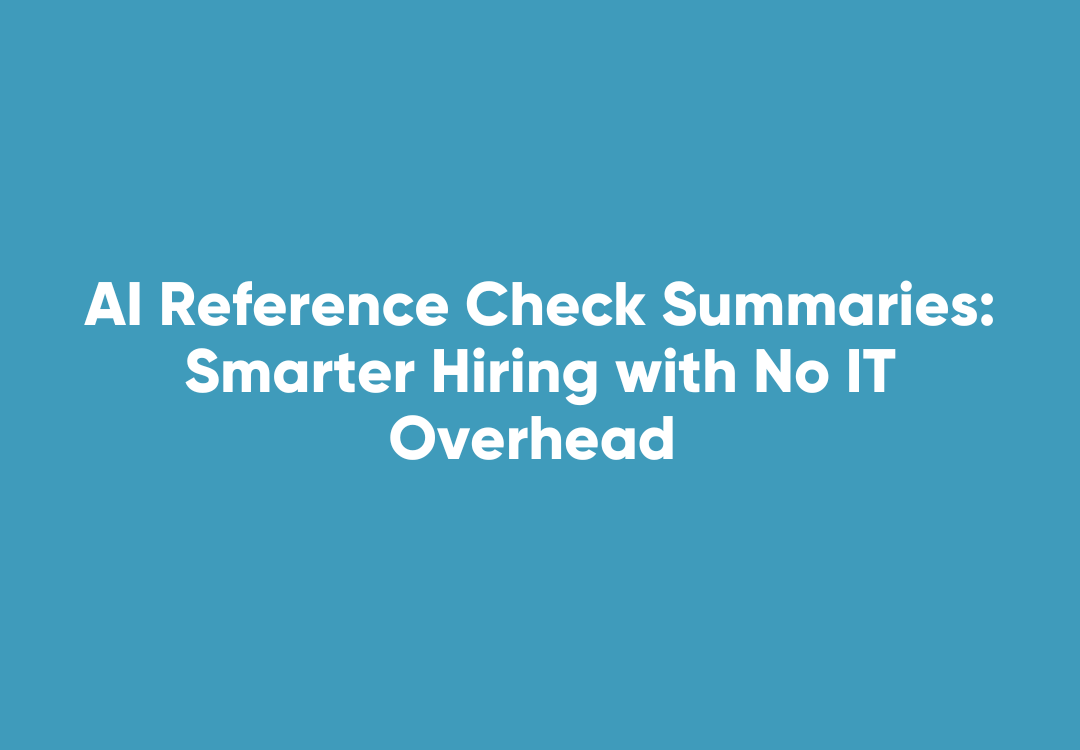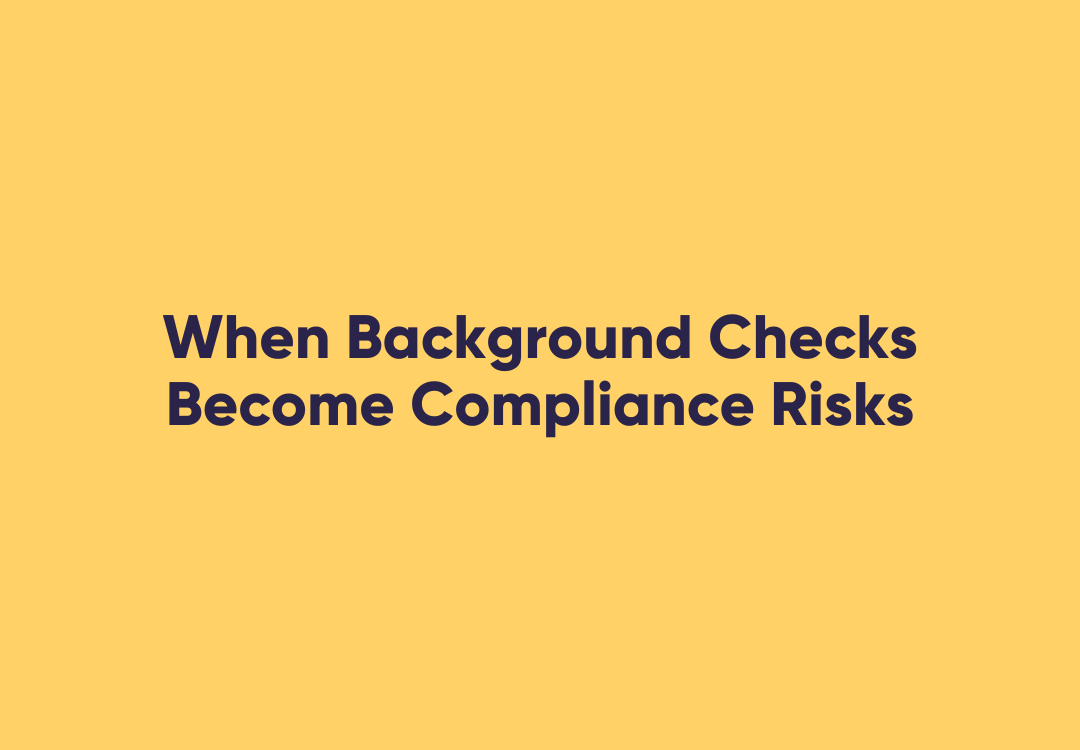Background Checks in the Childcare sector : A Wake-Up Call for the Sector
Background Checks in the Childcare sector : A Wake-Up Call for the Sector
The early childhood sector is under national scrutiny again. This time, it's not just policy driving change, but public outcry.
On 20 August 2025, Victoria released findings from its rapid review into early childhood safety, following disturbing revelations of serious abuse at multiple childcare services (The Guardian). The review found systemic failures in background screening and regulatory enforcement, prompting the state to announce a major overhaul of its child safety laws.
Among the key issues: a childcare worker with a history of criminal behaviour was cleared to work, and multiple abuse allegations were mishandled due to poor internal reporting systems (ABC News). The Victorian Government has accepted all 21 review recommendations, including increased unannounced inspections, faster suspension powers, and mandatory public disclosure of breaches (Wyndham TV).
While this latest case occurred in Victoria, the same risks exist elsewhere. That’s why the national reforms introduced earlier this year — from harmonised Working with Children Checks to compulsory child protection training — are more than just updates. They’re essential safeguards.
With greater legal consequences for non-compliance, now is the time for childcare providers to ensure their employee screening, training, and reporting systems are watertight — because families, regulators, and the law are watching.
Navigating the Changes: Breakdown of Major 2025 Reforms
1. Federal Law Changes – Funding Tied to Safety
In July 2025, the Early Childhood Education and Care (Strengthening Regulation of Early Education) Bill was passed, allowing the Department of Education to suspend or cancel Child Care Subsidy (CCS) approvals for providers who consistently fail to meet safety and quality benchmarks (Australian Parliament, 2025). Spot checks by federal officers are now authorised, and enforcement actions are published to increase transparency.
2. Mandatory Child Protection Training (CHCPRT025/026)
As of 1 April 2025, all educators, nominated supervisors, and teachers must complete either CHCPRT025 or CHCPRT026 — nationally accredited units covering child protection duties (training.gov.au). This replaces the fragmented approach to training across states and ensures every staff member knows how to identify, report, and respond to abuse.
3. Enhanced WWCC Rules and Continuous Monitoring
Attorneys-General agreed to a national recognition model for Working with Children Check bans, meaning if a person is refused in one state, that status applies across all jurisdictions (The Guardian, August 2025). The new Continuous Checking Capability (NCCC) provides real-time criminal history alerts across states, enabling faster responses to safety risks.
4. Digital Device and Image Policy Compliance
Following ACECQA’s 2024 Child Safe Code of Practice, new regulations from September 2025 mandate strict controls on device use and photographing children. Personal phones and cameras are no longer permitted for this purpose — only service-issued devices may be used, under clearly documented protocols (education.gov.au).
5. Health and Safety Standards Strengthened
All childcare premises must now be fully smoke-free and vape-free, including outdoor areas. Transport safety protocols have also been strengthened, requiring detailed roll calls, multiple checks, and immediate communication when transporting children (education.gov.au). New safe sleep rules ban bassinet-style cribs in favour of approved cots.
6. Tightened Incident Reporting Timeframes
The window for reporting serious incidents, including allegations of physical or sexual abuse, has been reduced from 7 days to 24 hours. This change means all staff must be trained to escalate any concerns immediately to service leaders, who are legally required to notify the regulator within the same day (education.gov.au).
7. Qualification Enforcement and Ratio Oversight
Educators “working towards” a qualification must now show evidence of enrolment and progress. For family day care, educators can no longer begin without holding a Certificate III. Regulators are also actively monitoring compliance with ratio and qualification standards through unannounced inspections (ACECQA).
WorkPro’s Role in Supporting Compliance
Meeting these new requirements is more than a paperwork exercise. It’s about implementing systems that ensure no child slips through the cracks — and that no staff member is operating without proper clearance or training.
WorkPro supports childcare providers by:
· Streamlining employee screening with integrated Working with Children Check tracking across states.
· Delivering accredited onboarding modules, including tailored child protection, WHS, and induction training.
· Automatically monitoring expiry dates for first aid, CPR, and WWCCs, prompting renewals.
· Centralising compliance records, so everything from certificates to declarations is audit-ready.
2025 has brought the most significant shift in childcare regulation in over a decade — and with it, new expectations on employers to verify, document, and train their workforce rigorously.
The best way to stay compliant? Embed safety into every stage of the employee journey, from recruitment and induction to refresher training and record-keeping.
Explore how WorkPro can help your childcare service meet these reforms head-on — with less stress, and more certainty.





